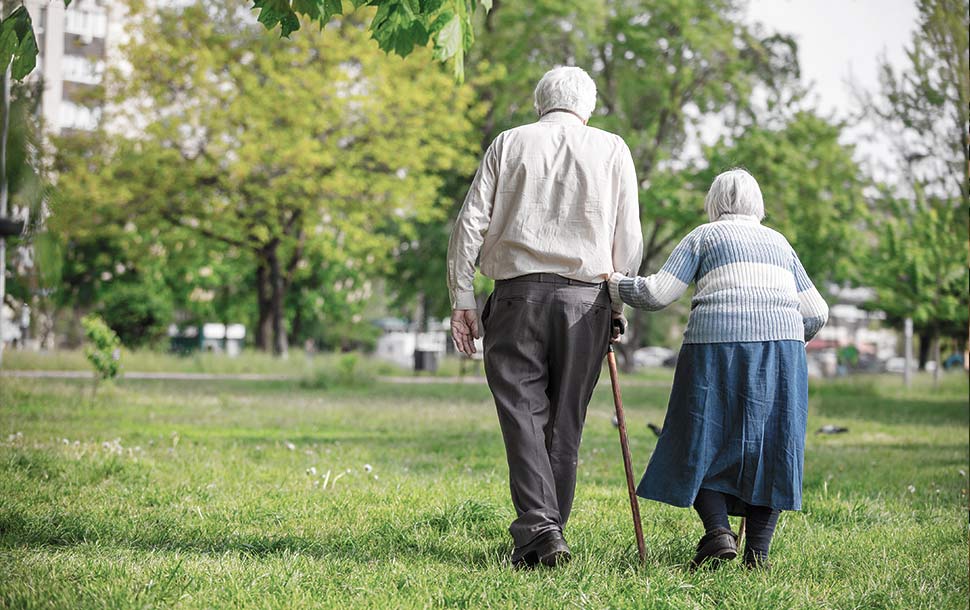This short article provides a taste of the VAD resources page available on this website. View the page for more ideas on talking, praying and acting on VAD in the gospel.
Voluntary Assisted Dying (VAD) refers to a practice in which a doctor intentionally ends the life of a person or helps them commit suicide by the administration of drugs at that person’s voluntary and competent request. The wave of support for VAD has been gathering across Australia for many years. Now that wave is breaking as bills for legalised VAD are rapidly introduced. The Queensland government inquiry into end of life issues is due to report its findings in March 2020.
While VAD is a current political issue, VAD discussion, at heart, grapples with the intensely personal experience of suffering, dying and mourning. It’s a discussion that pushes us to think about how we show love and hope in Christ to those around us confronting death. VAD promises a ‘good death’, a compassionate ‘way out’ to those who are fearful and suffering in the face of death. But in the gospel, we possess an infinitely better vision of a ‘good death’.
Thinking hard about VAD is also an opportunity for disciples of Christ to do some healthy self-reflection. VAD runs downstream from centuries of developing cultural thought on death and suffering. Even while we profess our faith in Jesus, we can quietly, subconsciously breathe in the cultural air. In what ways do we need to wake up and breathe in the hope of the gospel? Are we facing our own deaths with our hearts soundly invested in Christ?
Why VAD Seems a Good Idea
Think about your friends and family. What frightens them most about death? How do you feel about facing death?
1. The Terror of Suffering and Dying
Our community usually flees from death. But for more and more people, the process of dying has come to hold greater terror than death itself. We rarely hear about those who die well cared for, knowing the love of family and friends. We rarely hear that the dying generally desire more time not less. While there is enormous fear of unbearable physical suffering in dying, what increasingly drives the desire for VAD is the emotional suffering of an irrevocably changed sense of self, hopelessness and the loss of independence. A sense of being forgotten and without value in others’ lives magnifies that hopelessness.
Many of our neighbours also believe there is no greater story that extends beyond our present life. We simply make the best of now. If life is all about quality of life now, then it must end comfortably before the pain becomes too much. Compassion demands that the only thing to be done with suffering is to get rid of it, whatever it takes. If death is a vaguely conceived as a ‘better place’ or simply a retreat into nothingness, it seems a ‘way out’ from the terror of dying. A ‘good death’ means to finish a comfortable life with minimal ‘dying’.
2. The Terror of Dependence
The desire for VAD is also driven by the fear of needing someone else to feed us, clothe us, communicate and make decisions for us. We dread having our ability to choose what we do limited. We also dread limiting someone else by being a burden on them. In the hearts of all people beats a desire for the kind of freedom to decide what we want to do without anyone else imposing their values or restrictions — to rule ourselves. It’s completely natural, then, to feel we should be free to die when and how we choose. As one VAD slogan says, ‘My Life, My Death, My Choice.’
3. Human Dignity and Choice
‘Dignity’ speaks of an inherent quality that sits at the heart of what makes each person precious and worthy of respect. For many, dignity is closely wedded to self-rule. That means we can lose our dignity if we lose our thinking abilities — our life seems less worthwhile. This also means that choosing the way we die is a way of expressing our dignity.
What can we say to our friends in their fear? And to ourselves? Could it be that independence is overrated in our dying? Would you feel differently about death if you knew you would be loved and valued no matter what state you are in? Are you sure you know what is beyond death? Who is most worth listening to on matters of life and death?
A Better Story – A Good Death in Christ
1. We Depend on a Giving God — Who Gives us Christ
We are not the independent people we may think we are. We are deeply, fundamentally dependent on the God who made us and gives us life with lavish generosity (Acts 17:25-28). God’s most lavish provision for us is his Son Jesus who came to release us from suffering and death – ‘to give light to those who sit in darkness and in the shadow of death’ (Luke 1:79). Dependence on Jesus for truth, comfort and hope makes such a meaningful difference to coping with suffering and death in this broken world.
Since we are God’s dependent creatures, our dignity, our true ‘selves’ are crafted by Him. We are not merely material beings seeking material comfort in the now, but spiritual beings designed to be in intimate relationship with our Creator. His design is that we grow to trust and respond to Him as Jesus does (Romans 8:29-30). The dignity of that blueprint is not cancelled by our rejection of Him (Genesis 9:5-6; 1 Cor 11:7). It can’t be stolen away by illness. To honour the dignity of a dying woman is to honour her as God-made, no matter what her condition, tending to both her body and spirit, trusting that her premium good and hope is found in Christ.
2. God Gives us Bigger Vision in Christ
Jesus – Humanity at its Best
In Luke 4:1-13, Jesus, the perfect man, endures a dire situation in terrible isolation. After forty days alone and hungry, the devil suggests that Jesus should take things into His own hands in this seemingly God-forsaken place. But Jesus holds fast to a vision that extends far beyond present sensations. He knows His Father can be trusted to deliver Him at the perfect time. He refuses to take matters into His own hands, even in desperation, because He knows His Father’s love and He loves Him. He knows that the devil’s promises are dead ends. He knows there is infinitely greater comfort in the Lord’s long-term purposes than in a short cut ‘fix’ for suffering.
Jesus explodes our vision. He shows us there is something worse even than suffering and that is abandoning the Lord. He shows there is something better even than immediate relief and that is being in the Lord’s eternal care.
Self-Rule – Humanity at its Worst
Jesus is freely able to obey God’s voice with a consistency and passion that eludes us. We are not like Jesus. We don’t respond to God’s voice with wholehearted obedience. We intuitively take matters into our own hands. And like the prodigal son (Luke 15:11-21), we enslave ourselves to any number of unworthy, deceitful human masters and the entangling web of sin in the process. Death is not nothingness. It is the ongoing penalty for our catastrophic grasp for self-rule. Death in and of itself delivers no mercy or relief from pain. VAD does not work. The real terror of our lives is that we cannot escape the death we deserve.
3. God Gives Us True Freedom in Christ
In our dying, who better to entrust ourselves to than Christ? He is the only one who can bring us freedom from the horror of death. A ‘good death’ in Christ is to die knowing that death and judgement will not have the last word over us; that He has suffered and bled to pay the penalty of our sin and risen to give us life, leaving the terror of death behind; that He has inverted death into a means of securing our eternal joy in His company.
A ‘good death’ in Christ is also to die in the embrace of His people. God’s Spirit empowers us to gladly enter into the wearying work of loving the dying with sincerity and patience, bearing one another’s burdens, no matter how tiring or inconvenient (Gal 6:2; 1 Tim 5:3-8). We show love for a person as God-made when we hold his hands, rub his feet, mix his food and keep his mouth moist. We show love when we support good palliative care in our community and the health professionals who provide it. We show love when we sacrificially care for one another in interdependence. We show love when we help brothers and sisters of every age prepare for death by embracing dependence on our Father.
How can you show Jesus’ love in word and deed to those around you confronting death? How can you trust more deeply in Jesus as you confront death yourself?


